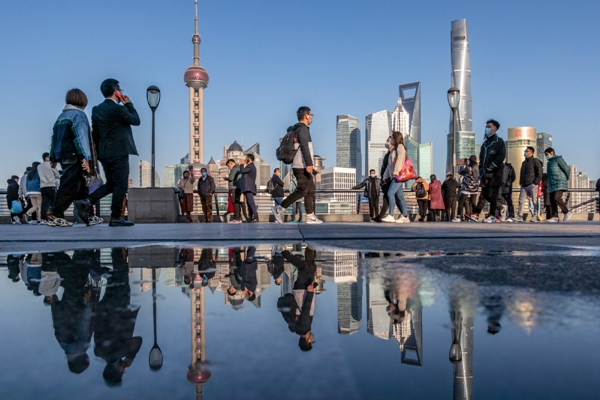 |
| Visitors gather in the Bund area of Shanghai. [Photo by Wang Gang/For China Daily] |
Shanghai has become the most attractive city in the world to young scientists under 30 years old, a report released during the 2021 Pujiang Innovation Forum in Shanghai stated.
In terms of attractiveness to global young scientists, Shanghai topped Chinese cities and was ranked fourth among 20 global innovative cities, including New York, London and Tokyo, according to the 2021 Ideal City – Global Young Scientists Survey Report by the Shanghai Institute of Science and Springer Nature Group.
China is fast becoming the first choice for young scientists from Europe and the United States to develop their careers overseas. Chinese cities are accelerating efforts to become a good platform for the growth and development of young scientists, the report said.
The results were based on a statistical analysis of more than 20,000 scientific research papers by young scientists and a questionnaire survey of thousands of such professionals around the world.
Young scientists are widely recognized as the most active group of scientists with the strongest entrepreneurial willingness and the key to future development. Statistics showed that the average age at which Nobel Prize-winning scientists made groundbreaking achievements is between 37 and 40 years old.
The report showed that since 2012, the ranking of per capita academic contribution of young scientists in Chinese cities such as Beijing, Shanghai and Shenzhen has risen rapidly. For example, the growth rate of young scientists in Shanghai was ranked sixth in the world, with the impact factor of their papers increasing by 304.4 percent over the past three years.
Wang Xueying from the Shanghai Institute of Science for Science, one of the main persons in charge of the report, said that although the report did not track the reasons behind the data trends, the accelerated development of young scientists in Chinese cities is obviously closely related to China's increasing value and investment to scientific and technological innovation in recent years.
The survey showed that in the past nine years, 60 percent of young European scholars willing to develop their careers overseas have chosen China, and nearly one-third of young scholars who have traveled from North America to the Asia-Pacific region have come to China.

